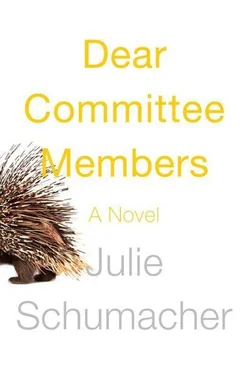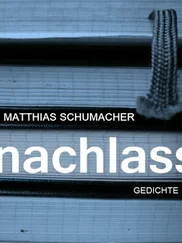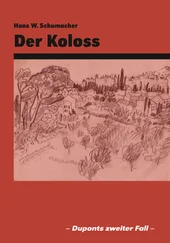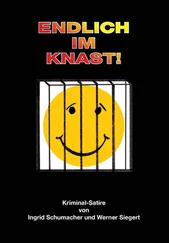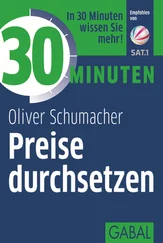1 ...7 8 9 11 12 13 ...26 Torreforde State University MFA Program
Admissions
77 Welshire Hall
Torreforde, MI 49004
Dear Readers and Committee Members,
Iris Temple has applied to your MFA program in fiction and has asked me to support, via this LOR, her application. I find this difficult to do, not because Ms. Temple is unqualified (she is a gifted and disciplined writer and has published several stories in appropriately obscure venues), but because your program at Torreforde State offers its graduate writers no funding or aid of any kind — an unconscionable act of piracy and a grotesque, systemic abuse of vulnerable students, to whom you extend the false hope that writing a $50,000 check to your institution will be the first step toward artistic success.
Do not suppose that I object to writing programs in general (I myself am a proud graduate of the Seminar) or that I indulge in the all-too-tiresome hand-wringing about the proliferation of MFA programs and the pseudo crisis of “too many writers.” If every member of the human race evinced a fondness for literature and even a moderate level of dexterity with the written word, I would be a happier, if not more well-adjusted, man. The trouble arrives when students are led to expect tenure-track jobs (those days are behind us) or champagne and caviar parties at Farrar, Straus and Giroux. They might as well invest in Powerball tickets: book sales continue their downward spiral, and the launch of a first or a subsequent volume is rarely the occasion for the unbridled hoopla that, in earlier days, it once was.
A quick outline of my own publication history will perhaps be instructive.
My first novel, Stain , sold twice as many copies as did my other three books combined, either because the marketplace, twenty years ago, was still romantically invested in the idea of a debut author, or because no one else had written an R-rated (if fictionalized) tell-all about H. Reginald Hanf and the Seminar. My literary doppelgänger, George Fitzgerald, was zealously reviled, and the novel feted, and I assumed that my success had just begun.
Alphabetical Stars and Save Me for Later manifested my attempts to “stretch myself” and to demonstrate my range as a writer: I didn’t want to be typecast as a gossipy satirist limited to the material in his own backyard. But what did I know about cold war defectors and their families, or about NASA in the 1960s? Not enough: the Chicago Tribune called Save Me for Later a “poor choice of subject, a sort of weird homage to the Stasi,” and The Boston Globe claimed that Alphabetical Stars portrayed John Glenn as “emotionally deformed.”
So. I returned in Transfer of Affection to familiar ground — to Stain ’s handsome protagonist, George Fitzgerald, and to the petty rivalries and comic (and sexual) misalliances in an academic milieu. Most readers think Stain is my best book, but Transfer is more sophisticated, more nuanced, smarter. Even so, it failed to move off the shelves. It also hastened the demise of my marriage, poor George Fitzgerald’s romantic blunders hinting too clearly at a few of my own. As for current and future projects, I have been working somewhat halfheartedly on a new novel, the early chapters of which my agent greeted with all the enthusiasm of a farmer presented with a bucket of dung.
The point of this little digression, in regard to Ms. Temple, is not to discourage the practice of writing: What, after all, is a writer’s life without a dose of despair? The point is that literary endeavor has always been riddled with frustration but in recent years has become increasingly formidable; ergo my revulsion for programs like yours that, under the false pretense of support, function as succubi draining the bank accounts and lifeblood of unsuspecting students like Iris Temple, whom I (warmly) recommend to you only on the condition that you offer her free tuition, at a minimum, as well as a frank disclosure regarding
a. the job market encountered by your recent graduates;
b. the dismal state of publishing;
c. declining literacy rates and plummeting support for the arts.
Should Ms. Temple matriculate at Torreforde State under these conditions, I shall wish her well and be the first to welcome her to “the writing life,” which, despite its horrors, is possibly one of the few sorts of lives worth living at all.
Collegially,
Jay Fitger
Professor, Creative Writing and English — Payne
Internship Coordinator
State Senator Pierce Balnearo’s Office
The Halls of Power
Honorable Internship Coordinator:
This letter’s purpose is to recommend to you — in the capacity of unpaid labor, presumably licking envelopes and knocking on doors — Malinda Heisman, a student in my Multicultural American Literature class. Malinda is an A student, a wide-eyed earnest individual who will undoubtedly benefit from a few months spent among the self-serving pontificates in the senator’s office.
Malinda is intelligent; she is organized; she is well spoken. Given her aptitude for research (unlike most undergraduates, she has moved beyond Wikipedia), I am sure that she will soon learn that the senator, his leathern face permanently embossed with a gruesome rictus of feigned cheer, has consistently voted against funds for higher education and has cosponsored multiple narrow-minded backwater proposals that will make it ever more difficult for her to repay the roughly $38,000 in debt that the average graduate of our institution inherits — along with a lovely blue tassel — on the day of commencement.
Malinda’s final essay in my class — here it is on my desk, among a cast of thousands — is a windy but assiduous reading of Jamaica Kincaid’s At the Bottom of the River . The essay demonstrates strong writing skills and rigorous thinking. Allow Malinda the privilege of laboring in your office for nothing (she’ll probably continue to work nights as a barista in the coffee empire), and I am confident you will be making, though perhaps not in the ways you might have intended, a remarkable contribution to her education.
With all best wishes, I remain
Your devoted public servant,
Jay Fitger, Professor of the Lost Arts
Payne University
Madelyne Tort-Verona, Director
Caxton Retreat Center
Caxton, WY 82201
Dear Elegant Madelyne, aka MTV:
It’s been too long — ten years? — since we ran into each other at the Western Writers conference in Denver. I remember sitting with you at the hotel bar, each of us (all right, yes, full disclosure, it was mainly me) unpacking the sordid facts of our professional and then our personal lives. Janet and I were still together then, but not very happily, and you had just gotten married, and you had come to the conference for a panel on writing about trauma and disability because you were interviewing for the job at Caxton, in the High Plains of Wyoming. I take my hat off to you, truly. I hope you’ve forgotten most of what you learned, that weekend, about me.
You may already have guessed that I’m writing to ask you a favor. I know that Caxton is designated for PTSD sufferers and survivors of military violence (I remember you telling me about the phantom pain in your husband’s leg and the way he used to wake at night, convinced his foot had returned, his missing toes scrabbling against the sheet), but my understanding is that you occasionally treat civilian PTSD as well. And so I’m wondering if, out there on the plains, perhaps midwinter or spring, you might find yourself with a vacancy and be inspired, for the sake of that evening at the conference or in memory of our Seminar days, to accept as a working client an exceptional student and advisee, Darren Browles. I wouldn’t bother to plead his case with you under ordinary conditions — that goes without saying. Of course he’s working on an unprecedented novel (I’m including the opening chapter here so you can see for yourself) — but more germane in this case, he’s in dire need and probably meets 90 percent of the criteria for a posttraumatic classification. May I explain?
Читать дальше
Конец ознакомительного отрывка
Купить книгу
